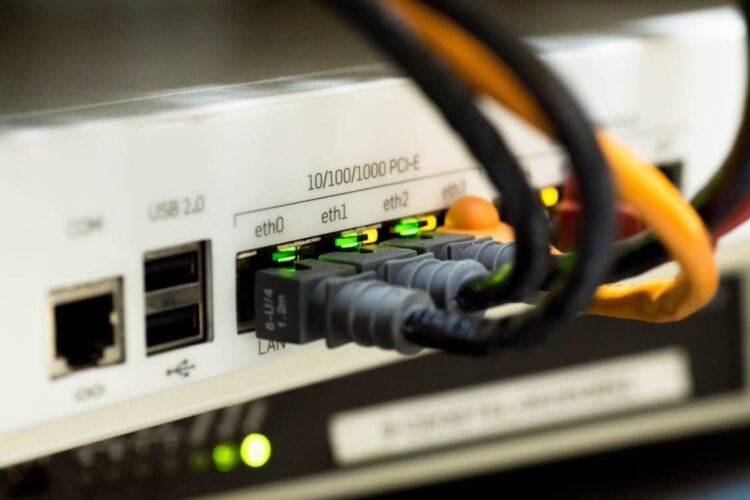Last updated on September 30th, 2022 at 04:47 pm
The United Kingdom draws in millions of visitors and tourists each year who come to see everything from Buckingham Palace to the Scottish Highlands; making it one of the busiest and most popular countries in the world. The amount of mobile data usage throughout the major UK cities is over 90 terabytes a day yet London still ranks lower than cities such as Seoul, Hong Kong, Tokyo, Paris, New York and Berlin for broadband speed.
In an attempt to boost 4G coverage and mobile broadband speeds Vodafone is seeking to increase the number of antennas in our capital which currently amounts to 2.5 antennas per kilometre. To put that into context, major European cities ahead of us in terms of broadband speed have around 6 or 7 antennas per kilometre.
One person who may be disappointed with these figures is Prime Minister David Cameron who last year promised fast and affordable broadband for all by the year 2020 prioritising it as a basic right on the same level as having access to water and electricity.
General mobile data usage has grown enormously in recent years with the rise of 4G data and major phone companies offering impressive new internet speeds. Though broadband speeds in the UK keep getting faster they still fall short in comparison to a lot of other countries across the world.

The UK has always been a major player on the world stage therefore it is embarrassing for our Capital to have slower broadband speeds than places like Chattanooga and Bucharest. We need London and the rest of the UK to be up there with other big names such as Tokyo, Seoul and Zurich.
Unsurprisingly, Londoners are the UK’s largest consumers of mobile data, according to a statement from Vodafone’s chief technology officer, with data usage the equivalent of 23 million songs being streamed each day. Vodafone is now asking local councils to allow more antennas to be installed on rooftops to create a faster network that will be able to compete with the other major cities around the globe.
Though major cities are currently enjoying fast and affordable internet speeds, the rural parts of the UK are being left behind with nearly half of rural households unable to receive speeds above 10Mbit/s and one in five unable to receive speeds of 5Mbit/s. Obviously rural areas are more sparsely populated than urban areas meaning that coverage suffers as a consequence; outdoor coverage in the city is as high as 99% which drops significantly to 72% in the countryside. Though lagging behind, coverage of fast broadband in rural areas has increased from 22% to 37% from 2014 to 2015.
The chart below from Ofcom’s 2015 Connected Nations Report shows the percentage of premises unable to receive fast download speeds. From looking at the chart it is obvious that rural areas have significantly less access to fast broadband speeds than urban areas.
With this report comes controversy with some calling for the end of BT’s stronghold over the cable networks. Research commissioned by the former Cabinet minister Grant Shapps, backed by a further 121 Member’s of Parliament, blasts BT for ignoring rural communities and criticises the amount of taxpayer money being wasted with little results to show for it adding that, “If Openreach can’t deliver it’s time for the regulator to step in and find another way”. Sarah Lee, from the Countryside Alliance, even went as far as describing the current situation as a “digital apartheid”.
The wait for rural broadband speed increases
According to the report, residents of rural areas may have to wait up to three years until they can gain access to broadband speeds that the rest of the country currently uses; though it may be a long wait it is still within the time limit set by David Cameron. However, Hubert Da Costa, Vice President at Cradlepoint, explains that, though optimistic, it simply isn’t possible to get a wired network to everyone in the UK particularly in locations with geographical challenges.
He suggests that in order to supply connectivity for all we should be looking at wireless alternatives for locations that simply cannot be reached with wired broadband:
“This isn’t a government or consumer issue, this is simply a fact. This is why we are seeing businesses setting up 4G Internet connectivity for either their primary networks or for network resiliency. Of course, connectivity is important, and it’s great that the government believes in ‘connectivity for all’ however behind the desire, there has to be a workable solution.”
Hubert Da Costa

Of course, though we should welcome Vodafone’s drive for faster internet, it’s important to note that the UK has vastly improved in comparison to previous years. The chart below shows the improvement of superfast broadband coverage throughout the UK from 2014 and 2015 as well as average download speeds.
Strong progress has been made but many are still affected by slow broadband speeds both personally and professionally.
Daniel Latto, a business coach from Leeds, often travels around the world for work and found that broadband speeds in the UK are not up to scratch in comparison with other countries:
“I run webinars for my clients and I find I can’t run them in the UK as the broadband speed is around 2MB. I would understand if I lived in the country but Horsforth is a bustling suburb of Leeds.”
Daniel Latto
Daniel finds that he can now only run webinars from his home in Spain, rather than from his home in Leeds which has affected his business considerably: “My broadband is much faster even in Spain, in a small town near the coast.” Daniel is understandably irritated at the situation and strongly agrees with the research commissioned by Grant Shapps MP regarding the disbandment of BT whom he describes as holding him ransom due to their monopoly of broadband services.
It’s clear that improvements still need to be made for the UK to be able to compete with the likes of China and the USA however the fact is that 83% of the country now has access to superfast broadband coverage, up 8% from 2014, bringing David Cameron’s ‘fast broadband for all by 2020’ pledge closer to reality.

